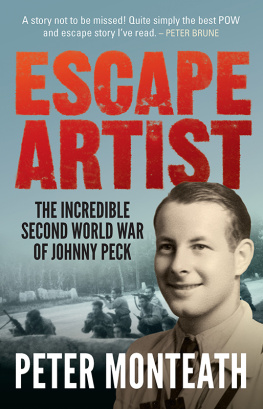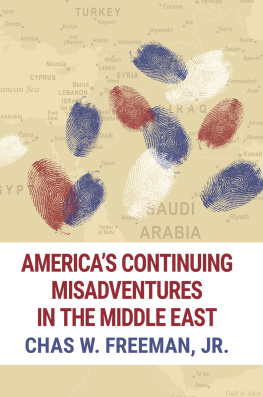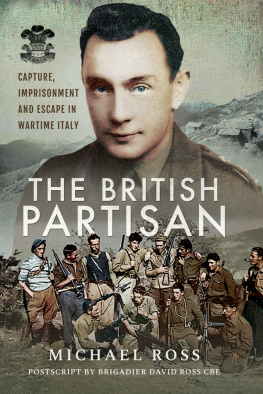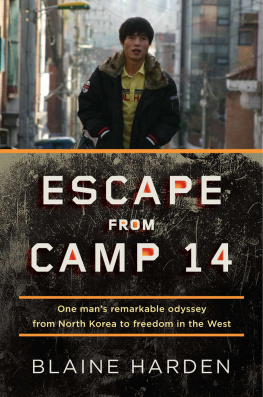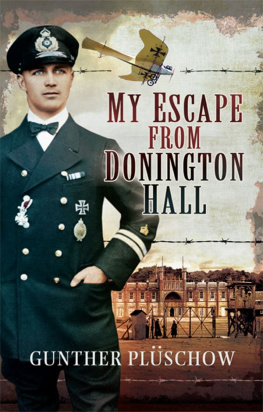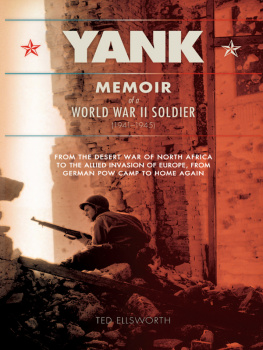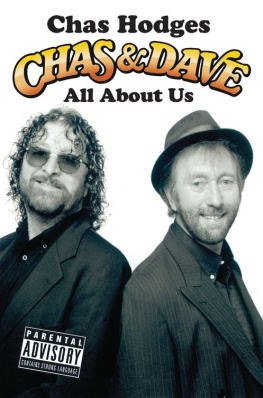RUMOURS :
A MEMOIR OF A BRITISH POW IN WWII
By Chas Mayhead
Copyright 2002 by Chas Mayhead
Pleasure Boat Studio: A Literary Press
Copyright 2002 Chas Mayhead
All rights reserved. This book may not be reproduced, in whole or in part, in any form, except by reviewers, without the written permission of the publisher.
Mayhead, Chas
Rumours: A Memoir of a British POW in WWII / Chas Mayhead
ISBN: 1-929355-06-8
First Printing
Design and composition by Sharon Lee Ryder f or Roy Smart
Published by Pleasure Boat Studio: A Literary Press
201 West 89th Street, #6F
New York, NY 10024-1848
Tel/Fax: 888-810-5308
Email:
URL: http://www.pbstudio.com
CONTENTS
Prologue:
Before the War
Chapter One:
Life as a Soldier
Chapter Two:
The Middle East
Chapter Three:
Italy
Chapter Four:
Germany
Chapter Five:
End of the War
Chapter Six:
Back in England
Epilogue:
Change in Attitude
Someone says, I hear theres a train coming in with food supplies. And immediately theres electricity. Wow. A train. A train! It was never true, ever, not once while I was there, but it kept you going. Or youd hear there was an air raid, that the Americans or the British or someone got through. Every day you'd hear something like that. Hopeful news. None of it was true. You believed it, though, because you needed to. Prison camp life was all rumours. Constantly. You lived on rumours. Especially food rumours.
THE DESERT
We thought wed made it. Dawn had crept in and finally we could see the desert, what there was of it to see. Mostly hillocks of sand colored rosy and golden from the sunrise and shaded by the passing night, occasional clumps of vegetation off toward the horizon. We pulled off the road onto a knoll capped by a few scrub trees, climbed into the open back of the lorry, and downed a biscuit or two. We took turns keeping awake since of course we couldn't travel during the day. German aircraft flew overhead, but if they spotted us, they must have thought we were Germans. I suggested we stay put until it got good and dark again. The others agreed.
That evening, we drove away in the direction we thought was right. I was at the wheel. At around one or two oclock in the morning, I saw something in the distance I could barely make out--a mass of black silhouettes dead ahead. It appeared to be a military camp but I couldn't be certain at that distance. On the other hand, I was too close to them to turn awaythat would have been a giveaway. Still, I was afraid they were Germans. I woke the others and told them what was up. I thought we should take our chances and keep going. We didnt really know who they were, and I didn't think we really had much of a choice. The others agreed, and we went on, very nervously. I'm surprised I could even keep the lorry going in a straight line. It didn't take long to discover that our fears had been realized: They were Germans, a Panzer group. Tanks. I dont know how many tanks there were, but there must have been more than a hundred, all lined up and spread across the desert. There was one main pathway down the middle. We headed for it.
We knew we were in trouble, but on we went. What choice did we have? It was dark as ink, so we thought we just might make it. We inched our way right down that pathway. A guard or two stood near every few tanks, but no one called out to us. Wed taken our hats off, of course, and our tropical gear didnt look much different from the German gear, so they obviously thought we were Germans. The lorry was pretty much nondescript, particularly in this darkness. Nobody among us was to speak no matter what happened. That was the rule. Nobody. Act like youre asleep. I drove very slowly, as though we were tiptoeing along in an attempt to be as quiet as possible. I was so scared I could taste steel deep in my throat. My mouth was dry but my brow was wet with perspiration. We could see the silhouettes of the German soldiers sleeping and occasionally we could see the guards. They didnt expect us to be British, of course. What kind of crazy British soldier would drive right down through the middle of a battalion of tanks?
I dont know how many guards we passed, but I knew one of them would say something. I had decided to say nothing if they spoke to me or else they would have known in a second that I wasnt German. I tried to act as though I was dead beat and just going forward by momentum. Some of them waved, sort of half waves. I waved back, shook my head, and moaned very softly, acting as though I was just going through the motions, trying to stay awake. Thats all. But it seemed to work. I told myself we couldn't win; before long someone will say something and we wont be able to answer. But it didnt happen. Unbelievable.
We got to the end of the line. It was probably fifteen minutes, but I swear it seemed like an hour or more. It was near 4:00 a.m. by then, and we just kept going. None of us could believe wed made it through. After we were out of sight, I finally stopped and said to the others, Weve made it. And by god, if we made it through that line, we can go anywhere! We felt terrifically relieved. Of course we wondered why those tanks were all stationed there, so close together, and we knew something big was going on. But at least we'd made it through. I got in the back of the lorry to relax and let someone else do the driving for a while. I just wanted to get to our company and tell about the tanks we'd seen.
An hour or two later, with dawn approaching fast, we started talking about finding some cover for the day. SuddenlyPop! Pop! Pop!machine-gun fire. Someone was shooting at us! We got out of the lorry immediately, scrambling out like someone had just dropped a bomb in the truck. But then we were in the open with nowhere to hide and, to make matters worse, we didnt know where the gunshots were coming from. I tried to tell myself it might be the British firing at us, might be our own men who hadnt been able to identify us. But I didnt really believe it. We squeezed under the vehicle to escape the shooting, but that didn't really work very well. We then made a run towards a dry river bed and got down low. We were like rats forced to scatter from their nest.
In no time at all, voices in English called out to us: Tommy! Hey, Tommy! This was a reference to Tommy Atkins, a name the Germans had used for the English in WW1. It wasnt used in this war, though, so we knew these were Germans.
PROLOGUE:
BEFORE THE WAR
We all knew there was something going on in Europe, especially in Germany, at that time, and of course rumours abounded regarding an imminent war, but I had seen in England the antics of Oswald Mosle y and the men around him with their marching and saluting, so I didn't pay much attention to it all. I suppose I thought Germany wouldn't go into another war after their defeat in 1918. It seemed crazy. But I didn't realize at the time that Hitler was a madman.
Nobody believed in the possibility of war. In fact, Neville Chamberlain, our prime minister, told the country there was no problem, it would all be straightened out. He traveled to see Hitler in order to avoid a war, and he came back and said, I have it here, the word of Adolf Hitler: No war. And we were all pleased about that because nobody wanted to see another war. Chamberlain managed to avoid war for a year, but it became ridiculous. Hitler and his entourage were monsters.
I was living at home at that time and earning only a small wage. That's the way it was. I was an office boy sitting on a stool and told to write "thick and thin" in a ledger of sorts, an old pen-and-inkwell job. I felt like something from a Charles Dickens story. About as well off, too! Well, the money I earned was paid to me on Friday, and I gave it to Mum right away; then she gave me a small amount back. Still, I managed to pay my own expenses, put some on the "never-never," and pay for an occasional big evening at the local cinema (the price being sixpence with a bar of nougat for one penny). I looked forward to that, an evening with the lads and girls.
Next page

